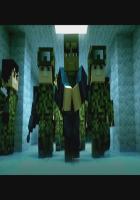"Besides, a Catholic monk is by nature excessively curious; it would be quite easy therefore to entice him into a wood, or some secret place, on false pretences, and there to deal with him as said. But I do not dispute in the least that the number of persons consumed appears to denote a spice of greediness.""It is perhaps true, gentlemen," said the prince, quietly. He had been listening in silence up to that moment without taking part in the conversation, but laughing heartily with the others from time to time. Evidently he was delighted to see that everybody was amused, that everybody was talking at once, and even that everybody was drinking. It seemed as if he were not intending to speak at all, when suddenly he intervened in such a serious voice that everyone looked at him with interest.
"It is true that there were frequent famines at that time, gentlemen. I have often heard of them, though I do not know much history. But it seems to me that it must have been so. When I was in Switzerland I used to look with astonishment at the many ruins of feudal castles perched on the top of steep and rocky heights, half a mile at least above sea-level, so that to reach them one had to climb many miles of stony tracks. A castle, as you know, is, a kind of mountain of stones--a dreadful, almost an impossible, labour! Doubtless the builders were all poor men, vassals, and had to pay heavy taxes, and to keep up the priesthood. How, then, could they provide for themselves, and when had they time to plough and sow their fields? The greater number must, literally, have died of starvation. I have sometimes asked myself how it was that these communities were not utterly swept off the face of the earth, and how they could possibly survive. Lebedeff is not mistaken, in my opinion, when he says that there were cannibals in those days, perhaps in considerable numbers; but I do not understand why he should have dragged in the monks, nor what he means by that.""It is undoubtedly because, in the twelfth century, monks were the only people one could eat; they were the fat, among many lean," said Gavrila Ardalionovitch.
"A brilliant idea, and most true!" cried Lebedeff, "for he never even touched the laity. Sixty monks, and not a single layman! It is a terrible idea, but it is historic, it is statistic; it is indeed one of those facts which enables an intelligent historian to reconstruct the physiognomy of a special epoch, for it brings out this further point with mathematical accuracy, that the clergy were in those days sixty times richer and more flourishing than the rest of humanity. and perhaps sixty times fatter also...""You are exaggerating, you are exaggerating, Lebedeff!" cried his hearers, amid laughter.
"I admit that it is an historic thought, but what is your conclusion?" asked the prince.
He spoke so seriously in addressing Lebedeff, that his tone contrasted quite comically with that of the others. They were very nearly laughing at him, too, but he did not notice it.
"Don't you see he is a lunatic, prince?" whispered Evgenie Pavlovitch in his ear. "Someone told me just now that he is a bit touched on the subject of lawyers, that he has a mania for making speeches and intends to pass the examinations. I am expecting a splendid burlesque now.""My conclusion is vast," replied Lebedeff, in a voice like thunder. "Let us examine first the psychological and legal position of the criminal. We see that in spite of the difficulty of finding other food, the accused, or, as we may say, my client, has often during his peculiar life exhibited signs of repentance, and of wishing to give up this clerical diet. Incontrovertible facts prove this assertion. He has eaten five or six children, a relatively insignificant number, no doubt, but remarkable enough from another point of view. It is manifest that, pricked by remorse--for my client is religious, in his way, and has a conscience, as I shall prove later--and desiring to extenuate his sin as far as possible, he has tried six times at least to substitute lay nourishment for clerical. That this was merely an experiment we can hardly doubt: for if it had been only a question of gastronomic variety, six would have been too few; why only six? Why not thirty? But if we regard it as an experiment, inspired by the fear of committing new sacrilege, then this number six becomes intelligible. Six attempts to calm his remorse, and the pricking of his conscience, would amply suffice, for these attempts could scarcely have been happy ones. In my humble opinion, a child is too small; I should say, not sufficient; which would result in four or five times more lay children than monks being required in a given time. The sin, lessened on the one hand, would therefore be increased on the other, in quantity, not in quality. Please understand, gentlemen, that in reasoning thus, I am taking the point of view which might have been taken by a criminal of the middle ages. As for myself, a man of the late nineteenth century, I, of course, should reason differently; I say so plainly, and therefore you need not jeer at me nor mock me, gentlemen. As for you, general, it is still more unbecoming on your part. In the second place, and giving my own personal opinion, a child's flesh is not a satisfying diet; it is too insipid, too sweet; and the criminal, in making these experiments, could have satisfied neither his conscience nor his appetite. I am about to conclude, gentlemen; and my conclusion contains a reply to one of the most important questions of that day and of our own! This criminal ended at last by denouncing himself to the clergy, and giving himself up to justice. We cannot but ask, remembering the penal system of that day, and the tortures that awaited him--the wheel, the stake, the fire!--we cannot but ask, I repeat, what induced him to accuse himself of this crime? Why did he not simply stop short at the number sixty, and keep his secret until his last breath? Why could he not simply leave the monks alone, and go into the desert to repent?















